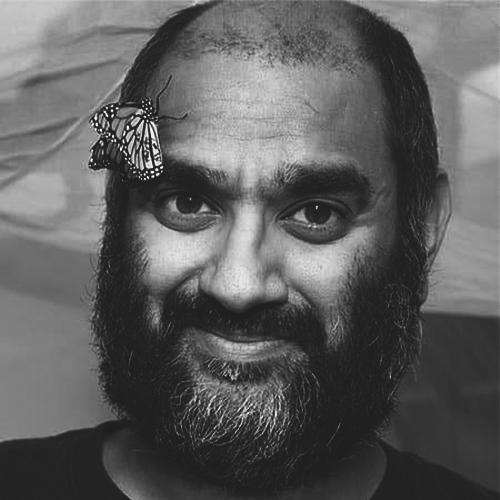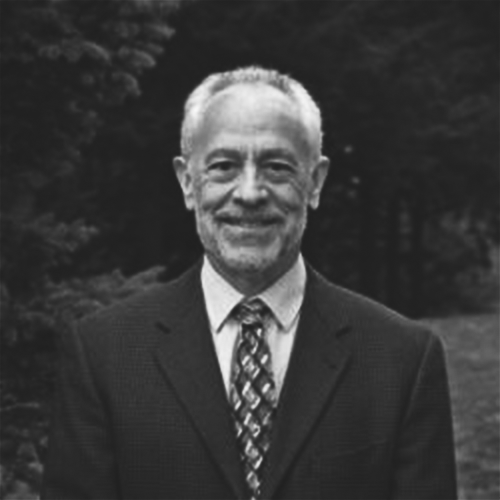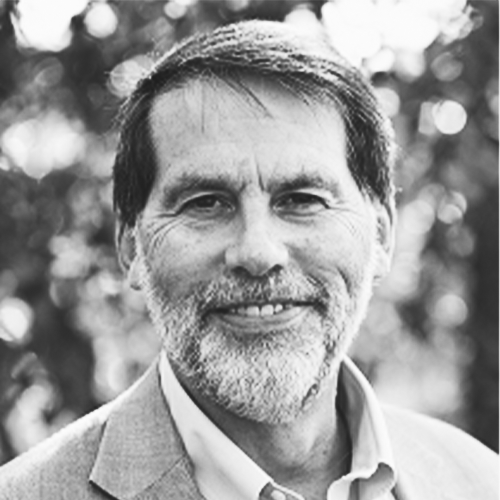Anurag Agrawal is the James A. Perkins Professor of Environmental Studies in Cornell University’s Department of Ecology & Evolutionary Biology as well as faculty fellow of the Cornell Atkinson Center for Sustainability. His research melds questions on the ecology and evolution of interactions between wild plants and their insect pests, including aspects of community interactions, chemical ecology, coevolution, and the monarch life cycle. Professor Agrawal lectures widely and has won numerous awards, including the highest honors from several academic societies focused on biology, plant science, entomology, and ecology. He teaches undergraduate and graduate courses in Ecology, Field Biology, and Chemical Interactions. Prior to joining Cornell in 2004, Professor Agrawal was an assistant professor at the University of Toronto. He received both his Bachelor’s and Master’s degrees from the University of Pennsylvania, where he worked with renowned tropical ecologist Daniel Janzen. Professor Agrawal holds a Ph.D. in Population Biology from the University of California, Davis.
Outsiders
Event Overview
This event is part of our Migrations series, sponsored by Cornell’s Migrations initiative.
RESOURCES / NEXT STEPS
Cornell Migrations
Mellon Just Futures
Data Driven: New Research Puts Spotlight on Migrants’ Rights
Outsiders: How the Invasion Concept Shapes Migration Perspectives
What You'll Learn
- How different disciplinary perspectives approach migration as a multi-species phenomenon
- How the problematic discourse on “invasion” in the context of human migration may apply across species
- The ways in which these interdisciplinary views on movement can deepen our understanding of borders and migration
Speakers
Christopher Dunn is the Elizabeth Newman Wilds Executive Director of Cornell Botanic Gardens, adjunct associate professor in the School of Integrative Plant Science Horticulture Section, and faculty fellow of the Cornell Atkinson Center for Sustainability. Before assuming his current role in 2014, Professor Dunn served as director of the Lyon Arboretum at the University of Hawaiʻi; executive director for research at the Chicago Botanic Garden; and director of research at The Morton Arboretum. He is actively engaged with boards of several organizations working to preserve the world’s biocultural diversity, including the U.S. office of the International Union for the Conservation of Nature (IUSN), the Center for Plant Conservation, and Terralingua. Professor Dunn is chair of the IUCN National Committee for the U.S. and the North American councilor for the International Association of Botanic Gardens. He served as president of the American Public Gardens Association and received its Award of Merit.
One of the world’s leading experts on invasive species, David Lodge has extensive research experience in freshwater ecology, invasive species biology and bioeconomics, ecological risk analysis, global changes and biodiversity, and environmental ethics and policy.
Professor Lodge has a long history of collaborating with economists, historians, theologians, and philosophers, and has partnered with organizations to bring his scientific work to the public policy arena. He has testified before Congress on numerous occasions, served on national and international policy boards, and was a senior science adviser to the U.S. Department of State. From 2013 to 2016, Professor Lodge was a member of the National Oceanic and Atmospheric Administration (NOAA) Science Advisory Board. He has published 240 scientific papers and edited two books.
Professor Lodge’s Cornell appointment began in May 2016. He serves as the first Francis J. DiSalvo Director of the Cornell Atkinson Center for Sustainability, thanks to a gift from David ’60 and Patricia Atkinson in honor of the Center’s founding director.
Professor Lodge’s past research in rural Kenya and Zambia identified ways to improve human livelihoods and health while also providing energy and minimizing environmental impact. While at Notre Dame, he founded two centers and coordinated externally funded research projects totaling $13 million in his last decade there. Professor Lodge led a formal partnership with The Nature Conservancy and annually convened representatives from 30 state, provincial, and federal agencies from the United States and Canada to enhance the relevance of university research and hasten its application in natural resource management. At Cornell, Professor Lodge leads projects funded by NSF, EPA, DoD, and NOAA.
Professor Lodge’s academic home at Cornell is in the Department of Ecology and Evolutionary Biology. He has a joint appointment with the College of Agriculture and Life Sciences and the College of Arts & Sciences.
Natasha Raheja is an assistant professor in the Cornell University Department of Anthropology, working in the areas of migration, citizenship, and ethnographic film. Professor Raheja’s current documentary video project “Kitne Passports?” (“How many Passports?”) visualizes the migration trajectories of Pakistani Hindu families in India from different caste backgrounds. She also is completing an experimental short film series on the movement of non-human animals and everyday objects across the India-Pakistan border. Professor Raheja’s scholarship has received generous support from the Fulbright Commission, the Wenner-Gren Foundation for Anthropological Research, the American Institute for Indian Studies, the NYU Vice Provost’s office, and several other endowments. She holds a Ph.D. in Anthropology, with a Graduate Certificate in Culture and Media, from New York University; a Master’s degree in Urdu; and Bachelor’s degrees in Biology and Asian Studies from the University of Texas at Austin.
Wendy Wolford is Vice Provost for International Affairs and the Robert A. and Ruth E. Polson Professor of Global Development in the College of Agriculture and Life Sciences. As vice provost, Professor Wolford supports Cornell’s international community and leads efforts to strengthen the university’s global connections and interdisciplinary initiatives.
Under Professor Wolford’s leadership, Cornell has created Global Hubs partnerships, Global Grand Challenges, and increased support for Scholars Under Threat. Her research spans land governance, social movements, agrarian studies, and political ecology, with long-term work in Brazil, Ecuador, and Mozambique.

Anurag Agrawal is the James A. Perkins Professor of Environmental Studies in Cornell University’s Department of Ecology & Evolutionary Biology as well as faculty fellow of the Cornell Atkinson Center for Sustainability. His research melds questions on the ecology and evolution of interactions between wild plants and their insect pests, including aspects of community interactions, chemical ecology, coevolution, and the monarch life cycle. Professor Agrawal lectures widely and has won numerous awards, including the highest honors from several academic societies focused on biology, plant science, entomology, and ecology. He teaches undergraduate and graduate courses in Ecology, Field Biology, and Chemical Interactions. Prior to joining Cornell in 2004, Professor Agrawal was an assistant professor at the University of Toronto. He received both his Bachelor’s and Master’s degrees from the University of Pennsylvania, where he worked with renowned tropical ecologist Daniel Janzen. Professor Agrawal holds a Ph.D. in Population Biology from the University of California, Davis.

Christopher Dunn is the Elizabeth Newman Wilds Executive Director of Cornell Botanic Gardens, adjunct associate professor in the School of Integrative Plant Science Horticulture Section, and faculty fellow of the Cornell Atkinson Center for Sustainability. Before assuming his current role in 2014, Professor Dunn served as director of the Lyon Arboretum at the University of Hawaiʻi; executive director for research at the Chicago Botanic Garden; and director of research at The Morton Arboretum. He is actively engaged with boards of several organizations working to preserve the world’s biocultural diversity, including the U.S. office of the International Union for the Conservation of Nature (IUSN), the Center for Plant Conservation, and Terralingua. Professor Dunn is chair of the IUCN National Committee for the U.S. and the North American councilor for the International Association of Botanic Gardens. He served as president of the American Public Gardens Association and received its Award of Merit.

One of the world’s leading experts on invasive species, David Lodge has extensive research experience in freshwater ecology, invasive species biology and bioeconomics, ecological risk analysis, global changes and biodiversity, and environmental ethics and policy.
Professor Lodge has a long history of collaborating with economists, historians, theologians, and philosophers, and has partnered with organizations to bring his scientific work to the public policy arena. He has testified before Congress on numerous occasions, served on national and international policy boards, and was a senior science adviser to the U.S. Department of State. From 2013 to 2016, Professor Lodge was a member of the National Oceanic and Atmospheric Administration (NOAA) Science Advisory Board. He has published 240 scientific papers and edited two books.
Professor Lodge’s Cornell appointment began in May 2016. He serves as the first Francis J. DiSalvo Director of the Cornell Atkinson Center for Sustainability, thanks to a gift from David ’60 and Patricia Atkinson in honor of the Center’s founding director.
Professor Lodge’s past research in rural Kenya and Zambia identified ways to improve human livelihoods and health while also providing energy and minimizing environmental impact. While at Notre Dame, he founded two centers and coordinated externally funded research projects totaling $13 million in his last decade there. Professor Lodge led a formal partnership with The Nature Conservancy and annually convened representatives from 30 state, provincial, and federal agencies from the United States and Canada to enhance the relevance of university research and hasten its application in natural resource management. At Cornell, Professor Lodge leads projects funded by NSF, EPA, DoD, and NOAA.
Professor Lodge’s academic home at Cornell is in the Department of Ecology and Evolutionary Biology. He has a joint appointment with the College of Agriculture and Life Sciences and the College of Arts & Sciences.

Natasha Raheja is an assistant professor in the Cornell University Department of Anthropology, working in the areas of migration, citizenship, and ethnographic film. Professor Raheja’s current documentary video project “Kitne Passports?” (“How many Passports?”) visualizes the migration trajectories of Pakistani Hindu families in India from different caste backgrounds. She also is completing an experimental short film series on the movement of non-human animals and everyday objects across the India-Pakistan border. Professor Raheja’s scholarship has received generous support from the Fulbright Commission, the Wenner-Gren Foundation for Anthropological Research, the American Institute for Indian Studies, the NYU Vice Provost’s office, and several other endowments. She holds a Ph.D. in Anthropology, with a Graduate Certificate in Culture and Media, from New York University; a Master’s degree in Urdu; and Bachelor’s degrees in Biology and Asian Studies from the University of Texas at Austin.

Wendy Wolford is Vice Provost for International Affairs and the Robert A. and Ruth E. Polson Professor of Global Development in the College of Agriculture and Life Sciences. As vice provost, Professor Wolford supports Cornell’s international community and leads efforts to strengthen the university’s global connections and interdisciplinary initiatives.
Under Professor Wolford’s leadership, Cornell has created Global Hubs partnerships, Global Grand Challenges, and increased support for Scholars Under Threat. Her research spans land governance, social movements, agrarian studies, and political ecology, with long-term work in Brazil, Ecuador, and Mozambique.
- View slide #1
- View slide #2
- View slide #3
- View slide #4
- View slide #5
View Keynote by completing the form below.
You're Registered!
https://ecornell.cornell.edu/keynotes/view/K030722/
Add to Calendar 1:00 PM - 2:00 PM EST
This event is part of our Migrations series, sponsored by Cornell’s Migrations initiative.
RESOURCES / NEXT STEPS
Cornell Migrations
Mellon Just Futures
Data Driven: New Research Puts Spotlight on Migrants’ Rights
Outsiders: How the Invasion Concept Shapes Migration Perspectiveshttps://ecornell.cornell.edu/keynotes/view/K030722/primaryAmerica/New_YorkeCornell
